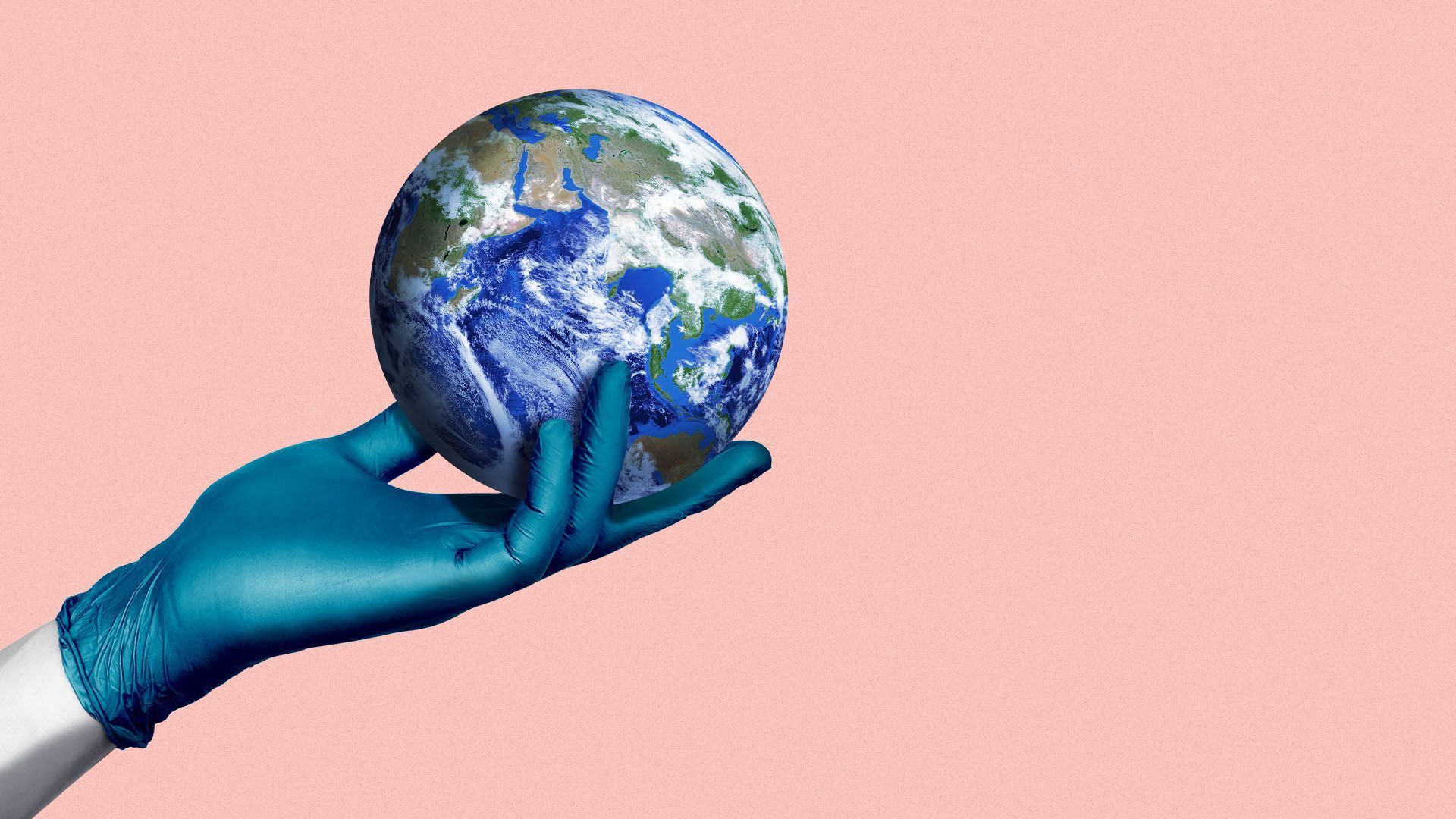The world beyond the pandemic
Add Axios as your preferred source to
see more of our stories on Google.

Illustration: Sarah Grillo/Axios
Things will never truly return to "normal" after the coronavirus. That's cause for eager anticipation, and also for dread.
What to expect: The world after COVID-19 will be poorer, at least for a time.
- It will be more unequal too, both within countries — where many skimmed along without coffee meetings and business trips, while others performed newly dangerous jobs, or lost them — and between them.
- Developing nations were hit earliest and hardest, and they'll likely be slowest to recover.
That’s some of the bad news, but perhaps not all of it.
- Leaders have flashed their authoritarian tendencies more brightly in this time of global crisis.
- International antagonism — between the U.S. and China, but also India and China and between North and South Korea — has heightened.
- As the virus collides with rising nationalism, the multilateral global system is growing weaker. No vaccine will cure that.
The other side: There's cause for optimism among the rubble. Practices and institutions that endured only through inertia before the pandemic may be halted, and then reversed.
- Systemic racism, inadequate health care and incompetent governance have all been laid bare. Unprecedented displays of international solidarity have filled streets from Minneapolis to Nairobi.
- Technologies and ideas that already existed are now being put to widespread use — to conduct business, education and health care remotely, for example.
- Crises have historically yielded innovation and creativity, as the FT’s Tim Harford documents. After the Plague came the Renaissance; after the Great Depression, the New Deal.
- For starters, medical research is now moving with unprecedented urgency. That haste has its own dangers, but the breakthroughs that are achieved will likely facilitate others.
What to watch: Innovation may surface in surprising ways. It was the death of thousands of horses in an 1815 famine, the Economist notes, that led Karl von Drais to invent the bicycle.
- Incidentally, demand for bicycles has never been higher. That’s in part due to the difficulties of traveling through our pandemic world.
- But it’s also indicative of a more encouraging trend, backed up by polling data. After so much time spent in our homes, we’re finding greater appreciation in the world outside.
The bottom line: The pandemic won't only change the world, but also the way we look at it.
